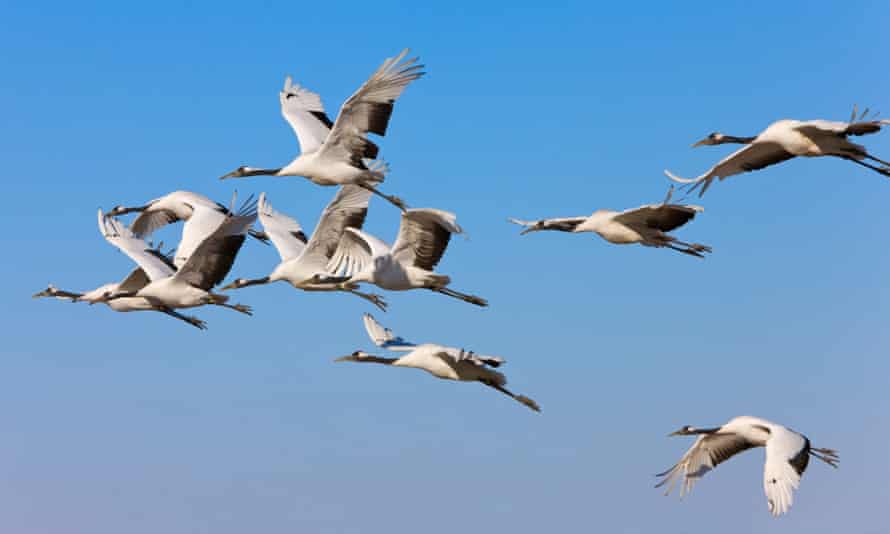A key United Nations summit to negotiate an accord for nature similar to the Paris climate agreement has been postponed for a second time, it has been announced.
The UN Convention on Biological Diversity (CBD) said in a a statement that Cop15, the biggest biodiversity summit in a decade, had been moved to October due to delays related to the coronavirus pandemic. The negotiations in Kunming, China, had been scheduled for May after they were moved from October 2020.
Countries are expected to reach an agreement over targets to protect the natural world, including proposals to conserve 30% of the world’s oceans and land by 2030, introduce controls on invasive species and reduce plastics pollution.
Scientists have warned that agricultural production, mining and pollution are driving the sixth mass extinction of life on Earth, with human activity threatening the healthy functioning of life-sustaining ecosystems.
The UN biodiversity head, Elizabeth Maruma Mrema said the summit would take place from 11-24 October 2021, but hinted that further delays might be necessary because of the pandemic.
The world has never met a single UN target to stem the destruction of wildlife and the natural world, failing to meet any of the 20 Aichi biodiversity targets agreed in Japan in 2010 to protect coral reefs, remove government subsidies that damage nature, and tackle pollution. It was the second consecutive decade that governments failed to meet targets.
Cop15 will be the first time China has led the world in a major international agreement on the environment.
Links between the destruction of the natural world and the emergence of zoonotic diseases have been amplified during the coronavirus pandemic, with increased awareness about humanity’s destruction of nature. But parties to the CBD have not been able to carry out scientific and preparatory work before Cop15, with some states objecting to online negotiations. The UN said it was working with regional representatives to find a solution so the meetings could take place before the Kunming summit.
Ahead of the talks, a coalition of more than 50 countries has committed to protect almost a third of the planet by 2030, including the UK, France and Costa Rica. The High Ambition Coalition (HAC) for Nature and People says it is hoping to drive a far-reaching agreement at Kunming.
In May 2019, leading scientists warned that, due to human activity, the natural world is being destroyed at a rate hundreds of times higher than the average for the previous 10m years.
The destruction of the planet’s rainforests, coral reefs and other vital ecosystems have placed humanity in jeopardy, with the report’s authors warning of “ominous” consequences such as freshwater shortages and climate instability unless radical action is taken to protect biodiversity.
In November, the UK will host the UN Cop26 climate summit, seen as one of the last chances to get on track to meet the goals of the Paris agreement and limit temperature rises to less than 2C above pre-industrial levels.
Source from:
https://www.theguardian.com/environment/2021/mar/19/cop15-kunming-un-biodiversity-summit-delayed-aoe

 7 Days GolfingTour
7 Days GolfingTour
 8 Days Group Tour
8 Days Group Tour
 8 Days Yunnan Tour
8 Days Yunnan Tour
 7 Days Shangri La Hiking
7 Days Shangri La Hiking
 11 Days Yunnan Tour
11 Days Yunnan Tour
 6 Days Yuanyang Terraces
6 Days Yuanyang Terraces
 11 Days Yunnan Tour
11 Days Yunnan Tour
 8 Days South Yunnan
8 Days South Yunnan
 7 Days Tea Tour
7 Days Tea Tour
 8 Days Muslim Tour
8 Days Muslim Tour
 12 Days Self-Driving
12 Days Self-Driving
 4 Days Haba Climbing
4 Days Haba Climbing
 Tiger Leaping Gorge
Tiger Leaping Gorge
 Stone Forest
Stone Forest
 Yunnan-Tibet
Yunnan-Tibet
 Hani Rice Terraces
Hani Rice Terraces
 Kunming
Kunming
 Lijiang
Lijiang
 Shangri-la
Shangri-la
 Dali
Dali
 XishuangBanna
XishuangBanna
 Honghe
Honghe
 Kunming
Kunming
 Lijiang
Lijiang
 Shangri-la
Shangri-la
 Yuanyang Rice Terraces
Yuanyang Rice Terraces
 Nujiang
Nujiang
 XishuangBanna
XishuangBanna
 Spring City Golf
Spring City Golf
 Snow Mountain Golf
Snow Mountain Golf
 Stone Mountain Golf
Stone Mountain Golf











 What Our Customers Say?
What Our Customers Say? alt="Market Days in Menglian and Townships, Puer"
/>
alt="Market Days in Menglian and Townships, Puer"
/>

